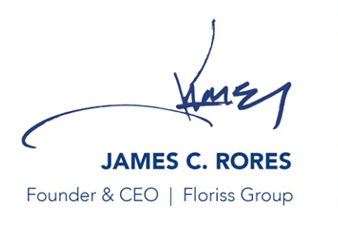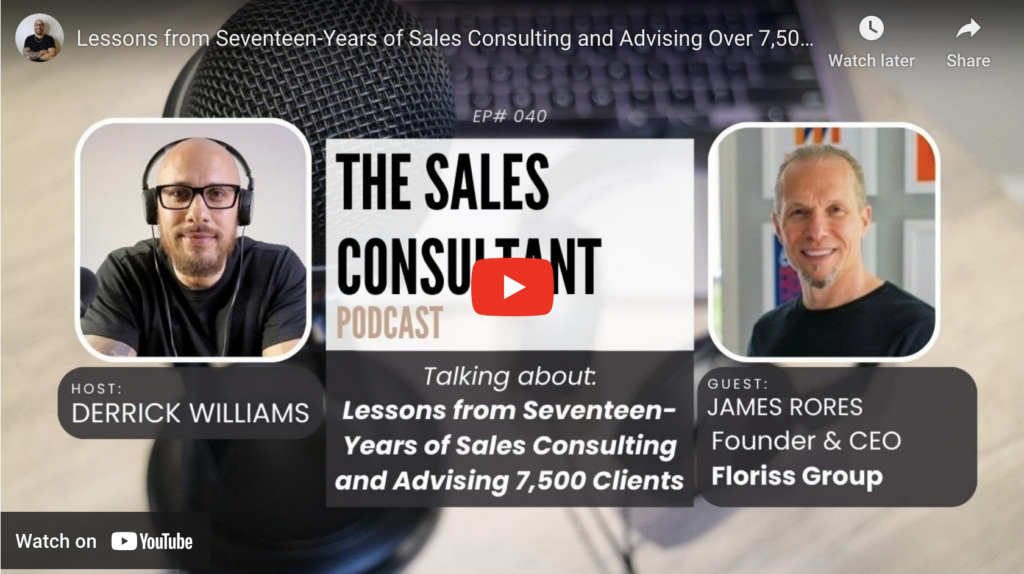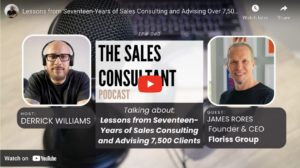Elevating your teams to world-class performance.
I was inspired to create a video to talk a little bit about a framework that we run through with managers who are looking to motivate and elevate their teams to world-class performance. We call it the GPS, the goal, the plan, the scorecard. Think of the last time you planned a trip someplace you’ve never been. You got in your car, you turned on your GPS. The first thing you did was type in the destination. This is the goal. The computer mapped out the plan to get there. And then what you had at your disposal was your entire dashboard which tracked the metrics that would allow you to know whether you’re on time as you execute that that trip (scorecard). The same thing is true for a rep and for a sales organization that’s committing itself to significant numbers or aggressive numbers for a quarter or for the year.
The Goal
We want to start with the rep’s revenue goal. Now we want to make sure that the conversation around goals expands beyond just revenue and income, right? Our reps are more than just a number, and they have to think about work as a place that’s more than just a place to make money. Today more than ever, reps are motivated, yes, by money, but more so by what they can do with the money. They’re motivated by time and the way they can spend their time, and it’s important for you to be able to attach the work that they do to the things that are most important to them. So, we want to focus for the sake of this conversation on revenue, and we’ll ask them just point blank, “you know, the comp plan….what’s your goal for the year, for the quarter?” Whatever’s important to you in the context of the conversation being an effective sales leader is about thinking of your reps in terms of the potential they can reach and how they can redefine that potential once they get there.
The Plan
So, I’m always thinking about reaching and redefining our potential as a team and as individuals so that I can come back to my organization and demonstrate to them repeatedly that we’ve got a team that they can grow with. Once I get their commitment, we then want to be thinking about the plan to get there. Now, before we talk about the plan, I want to be thinking about the gap between where they want to be and where they were last year or last period. The first question I’m going to ask a rep when we get to the plan conversation is, “what’s going to change?” And then I’ll just shut my mouth and listen. The intent of the question is to challenge them to say, what has to change in order for you to achieve the delta that you’ve identified in your goal? Now we’re going to get one of two types of answers.
One is focused on what they can control, and they can do differently. And one is focused on what they can’t control. Now, am I going to beat someone up because they picked the wrong answer, right? They focused on the external forces. Now that’s simply giving me insight into the coaching that I must deliver this person to make sure that they’re executing their plan throughout the year in a way that’s really going to get them where they want to go. I’m going to have to move and shift their mindset away from focusing on the things they can’t control to focusing on what they can control. Now, the other nice thing about a plan is it starts to document things that we can hold each other accountable to. And that’s really what we want to achieve when we’re thinking about leading a sales team. As a servant leader, what’s happening with me now as that leader is I’m serving shared goals, goals that we’ve both identified as important to us, and I’m leading them down a shared path to change.
So as such, as that leader, now we have a mutual agreement. We have a covenant, a bond that connects us, and any leadership that I bring to the table now should be welcome by my rep as long as it’s contributing to the goals that we’ve both identified for ourselves, the shared goals, and we’re walking a shared path. And if you handle this relationship, this conversation with every rep, the same way you’ll build a team that’s unified in the goal that they want to achieve, in the direction they want to head. No one should be out of sync. Everyone should be aligned and ready to go. Now the scorecard, the last component of the GPS is important as well, because this is going to identify the metrics that we’re going to use, the leading indicators that we’re going to use to make sure that the plan is being executed as expected.
The Scorecard
These are leading indicators that should add up to the ultimate goals that we have identified in terms of revenue and income based on the comp plan. So what’s really interesting about this approach, on one hand, it’s highly motivating. On the other hand, it also allows us to hold them accountable. What’s really interesting is that many managers aren’t really sure how to do both. How do I motivate somebody and hold them accountable? Because if you, if you’re doing them both at the same time, the accountability has to also be motivating. For many people, accountability is a negative thing because they’re used to the old carrot stick approach to management. In both cases, you’re creating a dysfunctional relationship with your rep. There’s a quid pro quo and it’s not about the team. It’s about either you’re going to be punished or going to be rewarded. And it creates a very negative relationship between the rep and the manager.
By using accountability to identify ways that we can improve, accountability now becomes a positive experience. It becomes something that adds value, and it becomes something that aligns my rep and me to get better, right? We’re both walking the journey together, but we’re also both improving together. We’re both using accountability as a way to identify areas for improvement, adjustments we can make together to achieve that objective. So, when you’re setting the scorecard, you can be thinking about and testing and sensing the tension, right, that exists in the rep. Because at the end of the day, you know, anything you can do to make this comfortable and positive for them is going to reward both of you moving forward. And you’re creating a covenant or an agreement that says, look, here’s the goal we’re going after together. Here’s the plan. We’re going to execute together and here’s the scorecard that we’re going to use to make sure that we’re on track. And this will allow you as a manager to earn the right to assert yourself and to bring that leadership to the table because that leadership will be serving the shared goal that you and your rep have identified.
That’s the GPS.
I hope this was helpful. If you have any questions, hit me up.
We are here to help.











